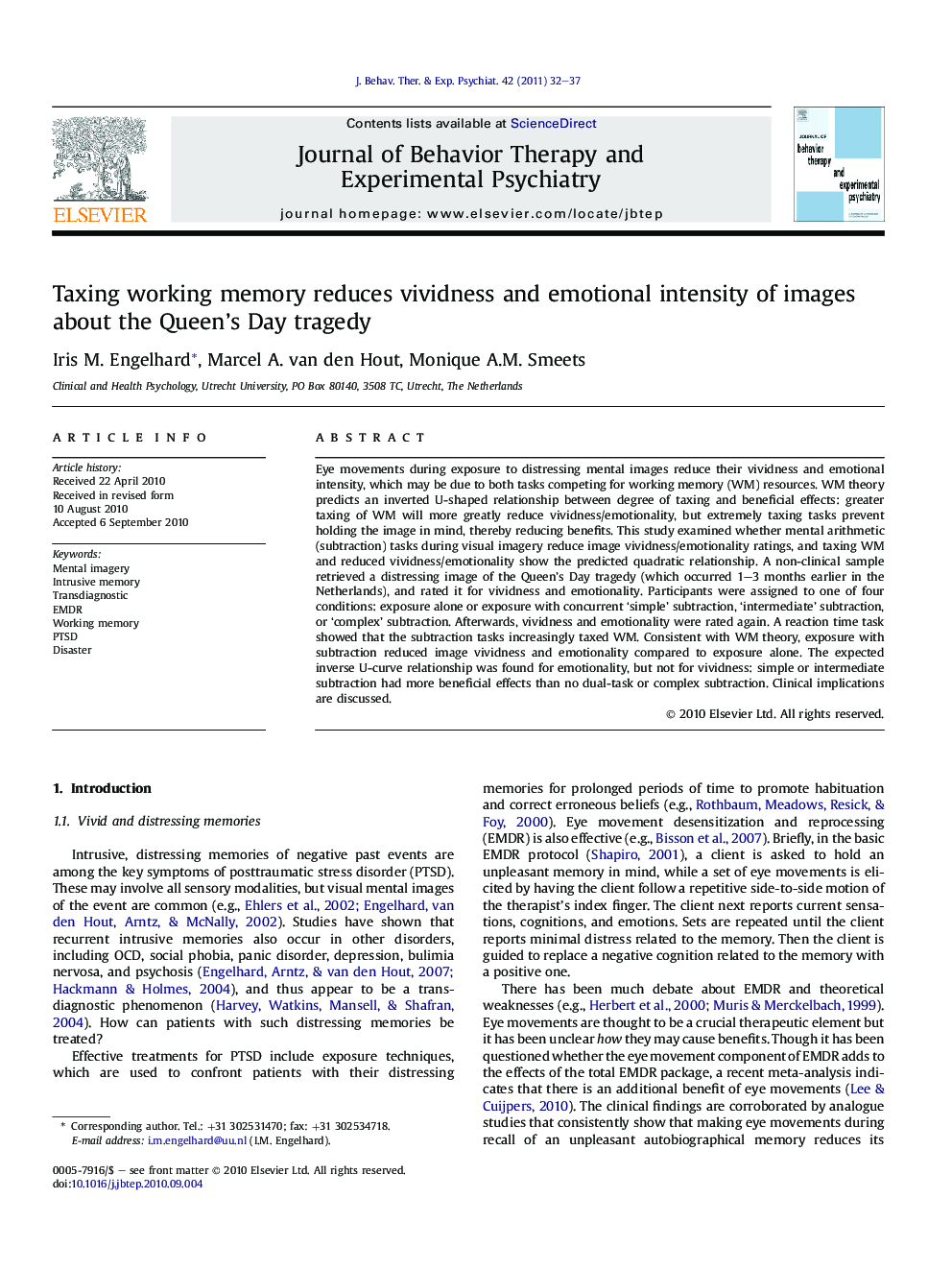| Article ID | Journal | Published Year | Pages | File Type |
|---|---|---|---|---|
| 910425 | Journal of Behavior Therapy and Experimental Psychiatry | 2011 | 6 Pages |
Eye movements during exposure to distressing mental images reduce their vividness and emotional intensity, which may be due to both tasks competing for working memory (WM) resources. WM theory predicts an inverted U-shaped relationship between degree of taxing and beneficial effects: greater taxing of WM will more greatly reduce vividness/emotionality, but extremely taxing tasks prevent holding the image in mind, thereby reducing benefits. This study examined whether mental arithmetic (subtraction) tasks during visual imagery reduce image vividness/emotionality ratings, and taxing WM and reduced vividness/emotionality show the predicted quadratic relationship. A non-clinical sample retrieved a distressing image of the Queen’s Day tragedy (which occurred 1–3 months earlier in the Netherlands), and rated it for vividness and emotionality. Participants were assigned to one of four conditions: exposure alone or exposure with concurrent ‘simple’ subtraction, ‘intermediate’ subtraction, or ‘complex’ subtraction. Afterwards, vividness and emotionality were rated again. A reaction time task showed that the subtraction tasks increasingly taxed WM. Consistent with WM theory, exposure with subtraction reduced image vividness and emotionality compared to exposure alone. The expected inverse U-curve relationship was found for emotionality, but not for vividness: simple or intermediate subtraction had more beneficial effects than no dual-task or complex subtraction. Clinical implications are discussed.
Research highlights► Mental arithmetic during recall of distressing mental images about the Queen’s Day tragedy decreases their vividness and emotional intensity, which may be due to both tasks competing for working memory resources. ► The effect for emotional intensity is reduced when the mental arithmetic task is too complex.
